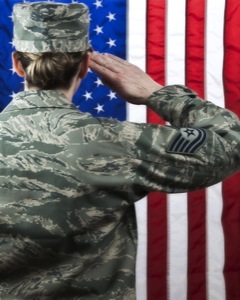
Epic struggles, real or fictional, always have a turning point. The Revolution had Saratoga, the Civil War had Gettysburg and the Lord of the Rings had Helms Deep. After the battles, the victors take a moment to raise their glasses in a celebration tempered by the knowledge that there is work to do come morning.
The repeal of Don’t Ask, Don’t Tell (DADT) may well be a turning point in the battle for LGBT equality, and should be celebrated. For the servicemembers and veterans who no longer must lie about who they are, for the activists whose tireless work has borne fruit and for the broader LGBT community who see another barrier to tolerance broken, a party is in order Sept. 20. But we should rise on Sept. 21 knowing there are still many battles to fight.
As with war, the first order of business is to solidify gains. Unfortunately, the repeal legislation did not include language to make discrimination against gay and lesbian servicemembers illegal. According to the Servicemembers Legal Defense Network (SLDN), nothing would stop a future president from reinstituting DADT or a similar policy. Pressure should be kept on Congress and President Obama to ensure that open service by members of the LGB community is sustainable.
It is also important to ensure that allies share in the spoils, and sadly the “LGB” above is not a typo. While the “T” community may raise a glass to celebrate repeal, it will be for the gains of others. The repeal of DADT did nothing for transgender servicemembers, except perhaps to highlight the expanding gap between acceptance of differences in sexual orientation versus gender identity.
Similarly, repeal did not protect LGBT veterans whose service was honorable, but whose discharge was not. DADT legislation did not specifically address gender identity or veterans, so it was difficult to include them in repeal. If the next battle does not involve transgender and veteran protections, however, we dishonor valued allies.
Sadly, even a sustained repeal that provided for these groups would eventually ring hollow, because serving openly is not serving equally. The demise of DADT means that the same-sex spouse of a servicemember might be notified of his or her death, but the Defense of Marriage Act (DOMA) ensures that they receive no survivor benefits. Further, until marriage equality is the law of the land, serving America may mean a relationship status that changes with each deployment or transfer. While the chain of command may allow for “second class” ranks, the military should not have second class citizens.
Addressing these inequalities is why open military service could be a turning point in the battle for equality. With DADT in effect, there was no need to worry about the relationship rights of LGBT soldiers. To fight for spousal rights and privileges, a servicemember had to violate DADT and risk discharge. Americans could patriotically support their men and women in uniform and simultaneously oppose LGBT rights.
That ends Sept. 20, 2011. On that day, the civilian and uniformed leaders of the military formally acknowledge what we knew to be true: that LGB servicemembers are no threat to morale or readiness, their contributions are valuable to our security and we need and want them to serve. Americans who support all their troops must end DOMA. Minnesotans who want to fight terrorism must vote against the ban on same-sex marriage. Californians who value national security must protect the FAIR Education Act, so that our children can learn about the heroism of people like Eric Alva, the first Marine wounded in Iraq.
Not all those who oppose equality will bend to those arguments, but many will. All but the staunchest deficit hawks refuse to cut military spending for fear that they would be seen as un-American. We must not be afraid to make the same association for LGBT rights. To do so is not an unfair co-opting of the sacrifice of LGB servicemembers, but a critical weapon in ensuring their rights, and the readiness of America.
On Sept. 20, LGB soldiers, sailors, airmen and Marines who served in silence will not longer be forced to do so, and we can honor them with a raised glass and a cheer. On Sept. 21, active duty LGBT service members will go back to work protecting an America that does not recognize their equality. To honor them that day, those of us who do not serve should work to protect their rights.










